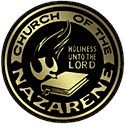John Wesley
Let all our chapels be built plain and decent; but not more expensively than is absoulutely unavoidable: otherwise the necessity of raising money will make rich men necessary to us. But if so, we must be dependent upon them, yea, and governed by them. And then farewell to the Methodist-discipline, if not doctrine too.
John Wesley, instructions to Methodists in the U.S. [1784]
John Wesley, the son of the rector of Epworth, Lincolnshire, was born in 1703. After being educated at Christ Church College, Oxford, Wesley was ordained in 1725. After finishing his studies Wesley remained Oxford where he taught Greek. At Oxford University John became a member of a small group which had gathered round his brother Charles Wesley. The group of Christians, which included George Whitefield and James Hervey, became known as the Holy Club or the Oxford Methodists. In 1735 John Wesley and his brother Charles became missionaries in America. After three years with the English settlers in Georgia, Wesley returned to England and joined George Whitefield in Bristol. Wesley's passionate sermons upset the local clergy and he found their pulpits closed to him. To overcome this problem in 1739 Wesley built a Methodist Chapel in Bristol. Wesley and Whitefield also gave sermons in the open-air. John Wesley continued to travel the country where he mainly visited poor neighbourhoods, and most of the people who attended his meetings were industrial workers or agricultural labourers. Wesley's main message was of God's love. He told the people who attended his meetings that if they loved God in return, they would "be saved from sin and made holy". Wesley also had a lot to say about personal morality. In his sermons he encouraged people to work hard and to save for the future. Wesley also warned against the dangers of gambling and drinking. Although there were Methodist ministers, John Wesley encouraged people who had full-time jobs to become lay preachers. This gave working people valuable experience of speaking in public. Later, some of these went on to become leaders of trade unions and reform groups such as the Chartists. Wesley found time to write a large number of books during his life-time. This included collections of psalms, hymns and sermons. He also founded and edited the Methodist Magazine. Wesley received over £30,000 in royalties from his writings. This was used for charitable work including the foundation of Kingswood School in Bristol. Wesley and his followers became known as Methodists. By the time John Wesley died in 1791, the Methodist movement had over 76,000 members.

